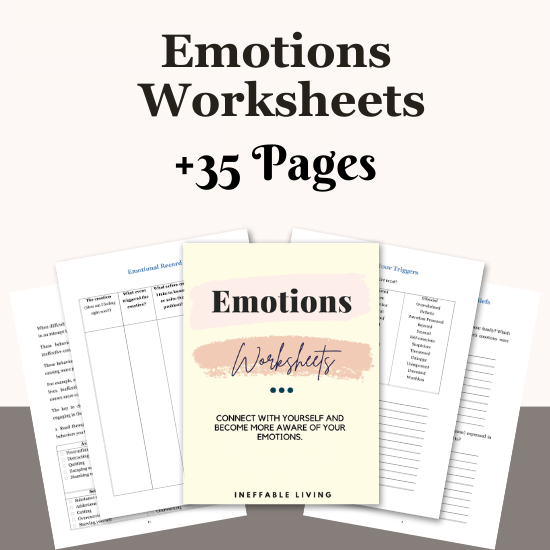In this post, you’re going to learn the difference between emotional maturity and emotional intelligence.
What Is Emotional Maturity?
Emotional maturity refers to the ability to effectively navigate one’s emotions, understand and manage them in a constructive manner, and respond to life’s challenges with resilience and insight.
It involves developing self-awareness, emotional regulation, empathy, and strong interpersonal skills.
Emotionally mature individuals can process their feelings without being overwhelmed by them, communicate assertively and empathetically, and adapt to changing circumstances with a sense of balance and perspective.
Emotional maturity often evolves through experiences, self-reflection, and personal growth, and it contributes significantly to overall mental well-being and fulfilling relationships.
What Is Emotional Intelligence?
Emotional intelligence (EI) refers to the ability to recognize, understand, and manage one’s own emotions, as well as the emotions of others.
It encompasses skills related to self-awareness, self-regulation, empathy, and effective interpersonal relationships. Individuals with high emotional intelligence can navigate social complexities, make sound decisions, and communicate skillfully in various contexts.
EI is also associated with resilience, adaptability, and well-being, and it plays a crucial role in leadership, teamwork, and overall success in both personal and professional spheres.
Developing emotional intelligence involves cultivating a keen understanding of emotions, harnessing them for constructive purposes, and fostering positive connections with oneself and others.
Related: Top 19 Emotional Intelligence Activities (To Improve Low Emotional Intelligence)
Emotional Maturity vs Emotional Intelligence
Emotional maturity refers to the ability to navigate and manage one’s emotions in a constructive manner, demonstrating resilience, self-awareness, and effective coping strategies.
It involves developing a sense of balance, perspective, and responsibility in handling one’s emotions and interpersonal relationships.
On the other hand, emotional intelligence (EI) encompasses the ability to recognize, understand, and manage not only one’s own emotions but also the emotions of others.
It involves skills related to empathy, social awareness, and proficient interpersonal communication. Emotional intelligence also includes the capacity to use emotions intelligently to facilitate thinking and problem-solving.
In summary, emotional maturity emphasizes an individual’s personal emotional growth and stability, while emotional intelligence encompasses a broader set of skills related to understanding and managing emotions within oneself and in social interactions.
Both emotional maturity and emotional intelligence are essential for personal and interpersonal well-being.
Developing these skills can lead to more fulfilling relationships and overall mental wellness.
Related: The Big List of Emotions




